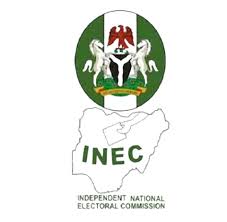
Itsekiri Nation Rejects INEC Ward Delineation in Delta State, Threatens Legal Action

The Itsekiri Nation has taken a firm stand against the recent ward delineation proposal put forward by the Independent National Electoral Commission (INEC) in Delta State, raising concerns over fairness and representation.
The group has vowed to pursue legal action if the proposed changes are implemented, citing significant disparities in the allocation of wards across ethnic groups in the Warri Federal Constituency, which includes Warri North, Warri South, and Warri South-West Local Government Areas.
This development has reignited long-standing ethnic tensions in the region, with the Itsekiri leaders arguing that the delineation fails to reflect the true voter strength and population dynamics of the area.
During a press conference held on April 6, 2025, in Asaba, Mr. Amorighoye Mene, Secretary of the Itsekiri Leaders of Thought, expressed the group’s dissatisfaction with INEC’s report.
He emphasized that the delineation process did not adequately consider the voting power of the major ethnic groups in the constituency, namely the Itsekiris, Ijaws, and Urhobos, as well as other mixed demographic areas.
Mene pointed out that the Itsekiri Nation expected a more balanced approach that would ensure equitable representation for all groups based on their registered voter numbers.
However, the proposed delineation, according to the Itsekiri leaders, disproportionately favors other ethnic groups, potentially undermining the Itsekiri’s political influence in the region.
Mene provided specific figures to highlight the perceived inequities. In Warri North, for instance, the Itsekiris, who previously had six wards compared to the Ijaws’ four, now have eight wards despite boasting 75,912 registered voters and 134 polling units.
Meanwhile, the Ijaws, with 35,480 voters and 58 polling units, have been allocated 10 wards.
In Warri South-West, the Itsekiris, with 94,074 voters and 175 polling units, were given only five out of 19 wards, while the Ijaws, with a slightly higher voter strength of 95,046 and 147 polling units, received 14 wards.
In Warri South, the Itsekiris, who have 88,309 voters and 174 polling units, were assigned eight wards, while the Urhobos, with 38,000 voters and 72 polling units, received 10 wards.
Additionally, in the mixed demographic areas of Warri South, which have 51,517 voters and 105 polling units, the Ijaws were allocated two wards.
These figures, according to Mene, demonstrate a clear imbalance that could lead to underrepresentation of the Itsekiri people in future electoral processes.
The Itsekiri leaders argue that if INEC proceeds with the current proposal, it could spark a crisis among the ethnic groups in the region.
They believe the delineation process should prioritize fairness and ensure that voters are not disenfranchised, emphasizing that the allocation of wards should directly correlate with the number of registered voters in each area.
The group has called on INEC to reconsider its approach and adopt a more equitable framework that reflects the demographic realities of the Warri Federal Constituency.
This controversy is not an isolated incident but part of a broader history of ethnic tensions in Delta State, particularly in the Warri area, which has long been a hotspot for disputes over land, political representation, and resource control.
The Itsekiri, a Yoruboid-speaking ethnic group with a population of over 1 million, have historically been at odds with neighboring groups like the Ijaws and Urhobos, especially during the Warri Crisis of the late 1990s and early 2000s.
Warri, a key industrial hub in Nigeria’s Niger Delta, is central to the region’s oil and gas production, making political representation a critical issue for the communities that depend on these resources.
The Itsekiri Nation’s rejection of INEC’s delineation underscores the ongoing struggle for equity and justice in a region marked by complex ethnic dynamics.


